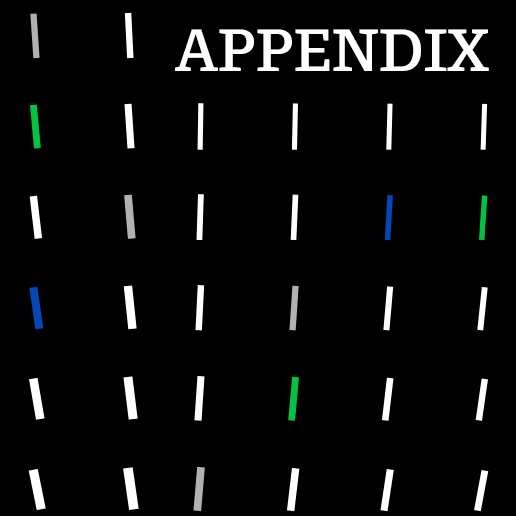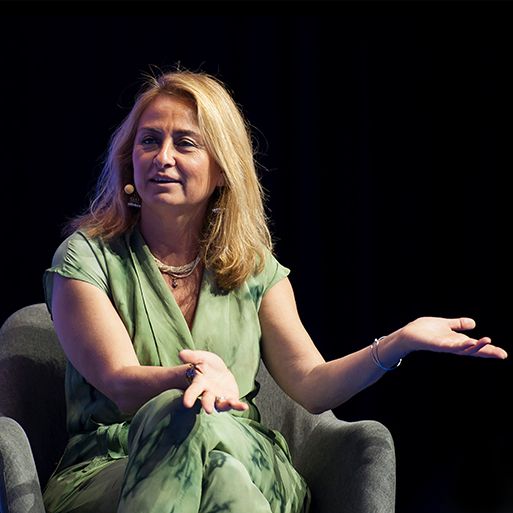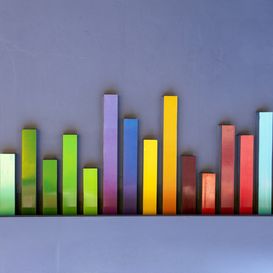

2. Positioning and ECP activities

2.1 Positioning of Eureka, the ECP and ITEA
Eureka is the world’s biggest public network for international cooperation on RD&I and innovation, present in over 45 countries. Eureka aims to boost the competitiveness and innovation capacity of Eureka countries and industries via international collaboration in funded projects.
Eureka has different instruments to foster innovation, including the Eureka Clusters Programme (ECP). These instruments are funded by national Public Authorities. Eureka therefore means more dialogue between industry and Public Authorities, and this dialogue enables new projects to be funded and new instruments to be developed based on the national priorities defined by Public Authorities and the urgent needs of industry.
The ECP consists of industry-driven and bottom-up RD&I programmes with thematic communities of experts. The ECP enables Eureka to be proactive, faster and more flexible and to also address new and emerging areas and cross-cutting themes for RD&I collaboration which complements the themes addressed by the Eureka Clusters.
ITEA is the Eureka RD&I Cluster on software innovation, enabling a strong international community of large industry, SMEs, start-ups, academia and customer organisations to collaborate in funded projects that turn innovative ideas into new businesses, jobs, economic growth and benefits for society. This is industry-driven and covers a wide range of business opportunities facilitated by digitisation, such as smart mobility, healthcare, smart cities, energy, manufacturing, engineering and safety & security. ITEA pushes important technology fields like artificial intelligence, big data, simulation, cybersecurity and high-performance computing into concrete business applications.
2.1.1 Complementarity in the European RD&I funding landscape
In many countries, there are national programmes that help to establish critical mass and differentiation for developing organisations and support national champions that meet the RD&I strategies and plans of the country. In national programmes, the project consortia (mainly consisting of organisations from only one country) are restricted to the available national RD&I resources and capabilities. But many projects need an international scope and market to realise the full potential of their ambitions. Eureka and the Eureka Clusters Programme, including ITEA, offer such an international scope, ecosystem and market.
At the European level, there are strategic programmes based on agreed priorities that provide support for early collaborative activities, as in Horizon Europe, and large technology initiatives, as in the Key Digital Technologies (KDT) JU. These programmes have a top-down approach in which work programmes define specific topics to address major technological, economic and societal challenges. The topic of each Call for proposals is often quite prescriptive, allowing a relatively limited scope for applicants to explore undefined topics that cross over different thematic areas. Whereas the European Union (as a supranational entity) tends to focus on the harmonisation of rules and the centralisation of implementing programmes, Eureka (being an intergovernmental organisation) emphasises the need for diversity, flexibility and variable geometry in the cooperation between countries. These approaches are fully complementary and mutually reinforcing.
In addition, the industry-driven, bottom-up focus of the Eureka Clusters Programme, including ITEA, and the close connection with national RD&I priorities perfectly complement the multinational and research excellence focus of Horizon Europe. In some cases, an ECP project might be the logical next step for a Horizon Europe project consortium to successfully exploit their project results and bring them to the market.
2.2. ECP bodies
To optimise collaboration and the operation of the ECP, several ECP working groups have been set up in which ITEA representatives take part:
- ECP-related working groups
- The Clusters Committee (CC) is composed of industry representatives from the Eureka Clusters. The CC is the decisionmaker and strategical decision body for the ECP on the industrial side. The CC and Public Authorities Committee (PAC) define the themes for the Joint Eureka Clusters Calls and steer the future of the ECP.
- The Clusters Committee Support Group consists of three representatives from members of the CC companies in order to support CC meetings and discuss CC-related topics at the execution level. This group is chaired by the CCF for industry, Sébastien Aubron.
- The InterCluster Operations Group (ICOG) has been established to take care of the daily operations of the Clusters regarding the ECP, including the definition of Joint Eureka Clusters activities like Joint Calls and the preparation of the Multi-Annual Plan (MAP) that will be issued every two years.
- The Eureka Clusters Communications Group is composed of the Communications Officers of all Eureka Clusters and the Eureka Secretariat and has the purpose of preparing all events and means of communication regarding the Eureka Clusters Programme. ICOG has final approval on all that is prepared by the Clusters representatives in this Communications Group.
2.3. ECP activities
An overview of all ECP-related activities in which the Eureka Clusters collaborated, including Calls and events, can be found below. An overview of ITEA's 2022 activities and events can be found in Chapter 4.
- ECP Calls and event
- Eureka Clusters Sustainability Call 2022, including the online Brokerage event
Together with Xecs, ITEA was Call leader for the Eureka Clusters Sustainability Call 2022. ITEA was responsible for the website and submission platform.
In order to support project idea leaders in the creation of a project proposal and the building of their consortium, an online Brokerage event was organised on 23 March 2022 for the Eureka Clusters Sustainability Call 2022. The event consisted of four different sessions: an introduction, project idea pitch sessions, online break-out sessions and a session on the next steps. During the event, 18 pitches were presented and 440 participants from 31 countries were registered for this free online event.
The Eureka Clusters Sustainability Call Brokerage event was a fully-packed day. In order to fully benefit from this Brokerage event, a one-hour online Brokerage preparation session was also organised on 10 March.
This Joint Sustainability Call followed a two-stage process and, by the deadline of 2 May 2022, 29 Project Outlines had been submitted, of which one was rejected immediately due to low quality and inconsistencies. The 28 remaining submitted POs had 1188 Person Years of total effort. Seven of the submitted POs had selected ITEA as the main Cluster and 10 POs had selected ITEA as a secondary Cluster. After evaluation, 17 consortia were invited to submit a Full Project Proposal but, by the deadline, only 15 FPPs with 93 project partners from 14 countries and a total effort of 620 Person Years had been submitted. Four consortia had selected ITEA as the main Cluster and seven had selected ITEA as a secondary Cluster. On 18 November, the labels were announced and 11 projects with a total effort of 480 Person Years received a label for the Eureka Clusters Sustainability Call 2022. Three projects with ITEA as the main Cluster were labelled, with a total effort of 200 Person Years. Another project with ITEA as the main Cluster and a total effort of 52 Person Years received a conditional label. This means that this project has to submit a Change Request and make several improvements before the start of the project.Call statistics and a description of each labelled Eureka Clusters Sustainability Call project that selected ITEA as the primary or secondary Cluster can be found in Chapter 3 and Appendix A.
- Global Innovation Summit 2022, Estoril (22-23 June 2022)
Together with all of the Eureka Clusters, ITEA was part of the Global Innovation Summit (GIS) 2022 in Estoril. This event was organised by the Portuguese Eureka Chair on 22-23 May and was inspired by the Atlantic, with the motto Innovation for a Greener, Digital and Healthier Planet through a collaborative approach. GIS 2022 focused on three main areas – Tech for Green, Digital Transition and Strategy & Policy-Making – to discuss and address global concerns such as present and future environmental and health challenges, how to reduce inequality and how to contribute to sustained and long-term economic and inclusive growth.
At this event, ITEA exhibited via a physical booth together with all of the Clusters. Eureka Clusters were also part of the Eureka Academy session that took place in the afternoon of day one of the event. This session allowed participants to learn more about the range of support and services offered by the Eureka Network, the procedures to follow and how to best prepare your possible project participation.
On day two, the Eureka Clusters jointly organised a session called 'How do Clusters generate strong impact for participating organisations and countries in the field of digital transition?' In this session, attendees learned about the strong outcomes and impact of collaborative projects, both from industry and from the side of policymakers.
During the GIS 2022, the Eureka Innovation Awards were presented in five categories. We are very proud of the ITEA projects and Community members, which were very well-represented in this competition: IMPACT was a finalist in the category 'Best Product and Service Innovation', TESTOMATproject leader Sigrid Eldh was nominated in the category ‘Best Woman in Leadership’ and the ITEA SPEAR project won in the 'Best Sustainable Innovation' category.
- Global Tech Korea 2022 (25-26 October 2022)
On 25-26 October, the Ministry of Trade, Industry and Energy (MOTIE) of South Korea and the Korea Institute for Advancement of Technology (KIAT) hosted Global Tech Korea 2022 in Seoul. The event programme consisted of four main parts, including keynotes, technology seminars & panel discussions, a regional forum and idea pitch & B2B sessions.
During the regional session on 26 October, a special seminar focusing on the Eureka Clusters was organised. The purpose of this seminar was to promote the Clusters to South Korean participants by giving them in-depth information on what the Clusters are and how to participate in their activities. Ultimately, it was an excellent opportunity to stimulate South Korean participation in the Clusters.
After a general Clusters introduction, each Cluster presented its ecosystem and way of working. On behalf of ITEA, Vice-chairman Jean-François Lavignon informed the attendees about the opportunities to engage in ITEA. Daesub Yoon from ETRI, partner in the successful OPTIMUM project, highlighted the benefits of collaborating in ITEA projects for Korean partners in another session.

Other chapters
Use the arrows to view more chapters

2. Positioning and ECP activities
Positioning of Eureka, the ECP and ITEA and ECP activities and events

Appendix A. Call statistics per year and per country
Participation in person-years per Call and per country per year





